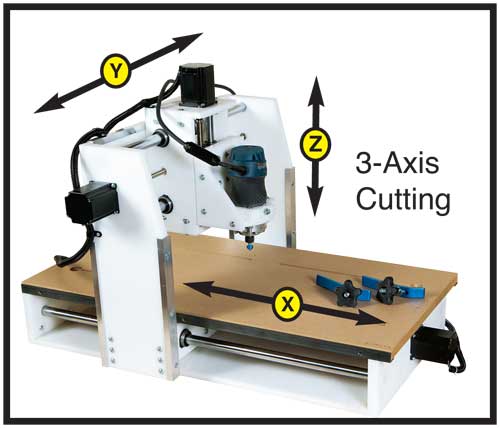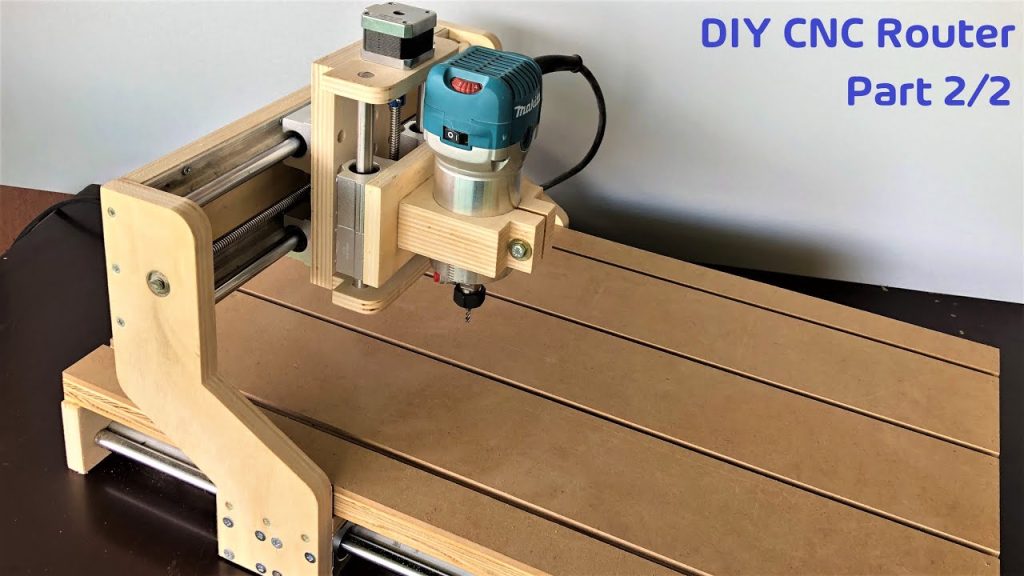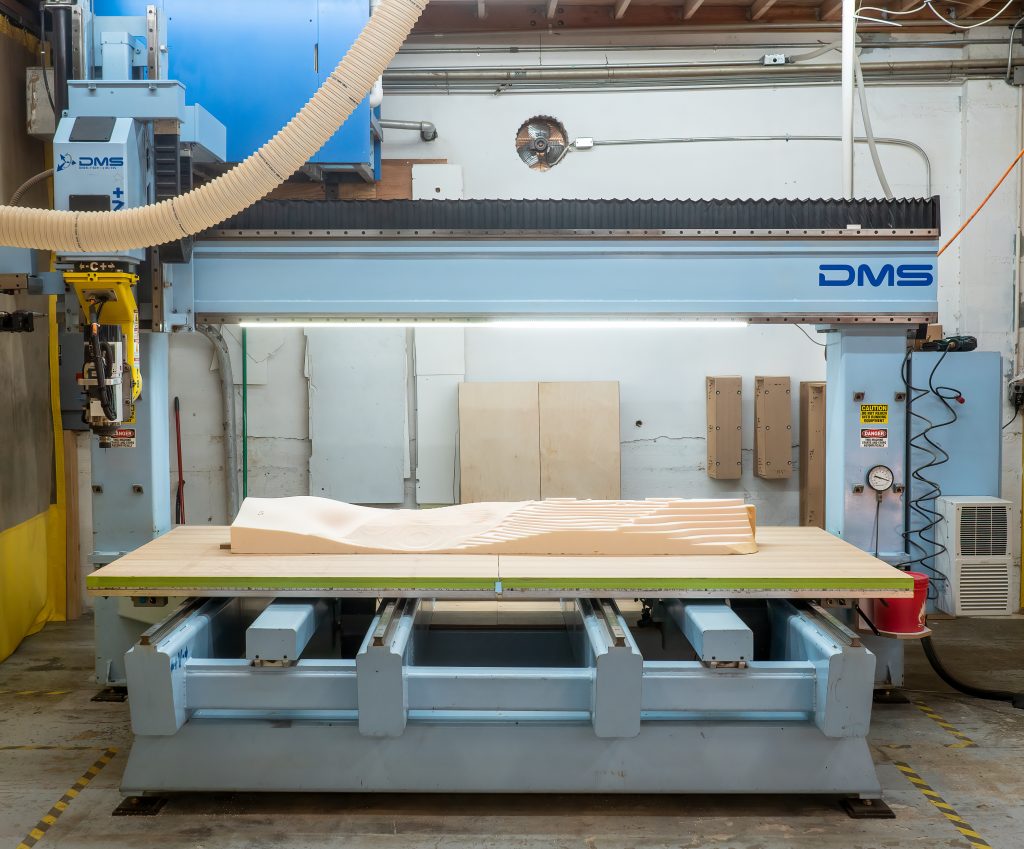Table of Contents
- What Size Stepper Motor for CNC Router?
- Step 1: Determine the Torque Requirements
- Step 2: Consider the Motor Size
- Step 3: Choose the Right Voltage
- Step 4: Consider the Microstepping
- Step 5: Consider the Motor Type
- Step 6: Check the Motor’s Holding Torque
- Step 7: Check the Motor’s Maximum Speed
- Step 8: Consider the Motor’s Step Angle
- Step 9: Benefits of Choosing the Right Size Stepper Motor
- Step 10: Stepper Motor vs. Servo Motor
- Frequently Asked Questions
- What size stepper motor do I need for my CNC router?
- What happens if I use a stepper motor that is too small for my CNC router?
- Can I use a stepper motor with a higher torque rating than recommended for my CNC router?
- What other factors should I consider when selecting a stepper motor for my CNC router?
- What are some common brands of stepper motors for CNC routers?
CNC routers have revolutionized the woodworking industry, making it possible to create intricate designs with precision and accuracy. One of the most important components of a CNC router is the stepper motor, which controls the movement of the machine. The size of the stepper motor is a crucial factor that determines the performance and efficiency of the CNC router. In this article, we will discuss what size stepper motor is suitable for a CNC router and how to choose the right one for your project.
When it comes to selecting the right stepper motor for your CNC router, there are several factors to consider, such as the size of the machine, the type of material being cut, and the desired level of precision. A stepper motor that is too small may not be able to handle the weight of the machine, while a motor that is too large may be overkill for your needs. With the right information and guidance, however, you can make an informed decision and choose a stepper motor that will meet your requirements and deliver the best results.
A stepper motor with sufficient torque is necessary for a CNC router. The required size of the stepper motor depends on the size of the CNC router and the type of material being cut. As a general rule, the stepper motor should have at least 2-3 times the torque required for the specific application. A NEMA 23 stepper motor is a common choice for small to medium-sized CNC routers while larger machines may require NEMA 34 or 42 motors.
What Size Stepper Motor for CNC Router?
If you are looking to build or upgrade your CNC router, one of the most important decisions you will need to make is selecting the right size stepper motor. Choosing the right motor will ensure that your machine operates smoothly, accurately, and efficiently. In this article, we will discuss the factors you need to consider when selecting a stepper motor for your CNC router.
Step 1: Determine the Torque Requirements
The first step in selecting a stepper motor for your CNC router is to determine the torque requirements. Torque is the rotational force that the motor can produce. The amount of torque you need will depend on the size and weight of the material you will be cutting, as well as the cutting speed and depth. To calculate the required torque, you can use the following formula:
- Torque (Nm) = (Cutting Force (N) x Cutting Radius (m)) ÷ Gear Ratio
Once you have determined the required torque, you can select a motor that can produce that amount of torque at the required speed.
Step 2: Consider the Motor Size
The size of the motor you need will depend on the size of your CNC router. Larger machines will require larger motors to ensure smooth and accurate operation. As a general rule, you should select a motor that is at least 20% larger than the torque requirements to ensure that it can handle any unexpected loads or variations in cutting conditions.
Step 3: Choose the Right Voltage
The voltage of the motor will determine the speed and torque characteristics. Higher voltage motors will typically have higher speeds and lower torques, while lower voltage motors will have lower speeds and higher torques. You should select a motor with a voltage that is compatible with your CNC router’s power supply.
Step 4: Consider the Microstepping
Microstepping is the process of dividing each step of the motor into smaller steps, which allows for smoother and more precise movement. The number of microsteps per step will affect the accuracy and smoothness of the machine. A higher number of microsteps will result in smoother and more accurate movement, but will also require a more powerful motor.
| Microstepping | Accuracy | Smoothness |
|---|---|---|
| Full Step | Low | Low |
| Half Step | Medium | Medium |
| Quarter Step | High | High |
| Eighth Step | Very High | Very High |
Step 5: Consider the Motor Type
There are two main types of stepper motors: bipolar and unipolar. Bipolar motors have two coils that are energized in a specific sequence to rotate the motor. Unipolar motors have four or five coils that are energized in a specific sequence to rotate the motor. Bipolar motors are generally more powerful and efficient, but require a more complex driver circuit.
Step 6: Check the Motor’s Holding Torque
The holding torque is the amount of torque that the motor can produce when it is not moving. This is an important consideration for CNC routers, as it will ensure that the machine stays in place when it is not in motion. You should select a motor with a holding torque that is at least 30% of the required torque for cutting.
Step 7: Check the Motor’s Maximum Speed
The maximum speed of the motor will determine how quickly the machine can move. You should select a motor with a maximum speed that is compatible with your CNC router’s mechanical components, such as the lead screw or ball screw.
Step 8: Consider the Motor’s Step Angle
The step angle is the amount of rotation required to move the motor one step. Most stepper motors have a step angle of 1.8 degrees, which means that it takes 200 steps to complete one full rotation. However, some motors have a step angle of 0.9 degrees, which allows for more precise movement.
Step 9: Benefits of Choosing the Right Size Stepper Motor
Choosing the right size stepper motor for your CNC router can have several benefits. It can ensure that your machine operates smoothly and accurately, reducing the risk of errors or damage to the material being cut. It can also increase the efficiency of the machine, allowing you to complete projects more quickly and with less waste.
Step 10: Stepper Motor vs. Servo Motor
While stepper motors are a popular choice for CNC routers, servo motors are another option. Servo motors use feedback control to ensure precise movement, making them a good choice for high-precision applications. However, they are generally more expensive than stepper motors and require more complex control systems.
Overall, choosing the right size stepper motor for your CNC router is a critical decision that will impact the performance and efficiency of your machine. By considering the torque requirements, motor size, voltage, microstepping, motor type, holding torque, maximum speed, and step angle, you can select a motor that meets your needs and ensures that your machine operates at its best.
Frequently Asked Questions
What size stepper motor do I need for my CNC router?
When it comes to selecting the right size stepper motor for your CNC router, there are a few factors to consider. First and foremost, you’ll need to take into account the size and weight of your router. A larger, heavier router will require a more powerful stepper motor to move it effectively. You’ll also need to consider the types of materials you’ll be working with and the level of precision you require in your projects.
Typically, a CNC router will require stepper motors with a torque ranging from 100 oz-in to 200 oz-in. However, this can vary depending on the size and weight of your router, as well as your specific project requirements. It’s important to do your research and consult with an expert in order to determine the best size stepper motor for your needs.
What happens if I use a stepper motor that is too small for my CNC router?
If you use a stepper motor that is too small for your CNC router, you may experience a number of issues. The most common issue is that the motor will not be able to effectively move the router, resulting in poor or incomplete cuts. You may also experience issues with accuracy and precision, as a smaller motor may not be able to provide the necessary level of control.
It’s important to select the right size stepper motor for your CNC router in order to ensure that it operates effectively and efficiently. If you’re unsure about which size motor to choose, it’s best to consult with an expert who can help you make an informed decision. Investing in the right motor will ultimately save you time, money, and frustration in the long run.
Can I use a stepper motor with a higher torque rating than recommended for my CNC router?
While it may be tempting to use a stepper motor with a higher torque rating than recommended for your CNC router, it’s generally not recommended. Doing so can put additional strain on your router’s components and may cause it to wear out prematurely.
In addition, using a motor with a higher torque rating may not necessarily result in better performance. In fact, it may actually cause issues with accuracy and precision, as the increased torque may make it more difficult to control the movement of the router. It’s best to stick with the recommended torque rating for your specific router and project requirements.
What other factors should I consider when selecting a stepper motor for my CNC router?
In addition to torque rating, there are a few other factors to consider when selecting a stepper motor for your CNC router. One important factor is the voltage rating of the motor. You’ll want to ensure that the motor is compatible with your router’s power supply and that it can handle the necessary voltage.
You’ll also want to consider the step angle of the motor. A smaller step angle will provide finer control over the movement of the router, while a larger step angle may be better suited for larger, more heavy-duty applications. Finally, you’ll want to consider the overall quality and reliability of the motor, as a high-quality motor will ultimately provide better performance and last longer.
What are some common brands of stepper motors for CNC routers?
There are many reputable brands of stepper motors that are well-suited for use with CNC routers. Some common brands include Nema, Oriental Motor, and StepperOnline. Each of these brands offers a range of motors with varying torque ratings, step angles, and other features, making it easy to find a motor that is well-suited for your specific needs.
When selecting a brand of stepper motor, it’s important to do your research and read reviews from other users. Look for motors that are known for their quality and reliability, and be sure to choose a motor that is compatible with your router and project requirements. With the right motor, you can achieve the level of precision and control you need to create high-quality projects with your CNC router.
In conclusion, choosing the right stepper motor size for your CNC router is a critical decision that requires careful consideration. A stepper motor that is too small will not provide enough torque to move the machine accurately, while a motor that is too large will be unnecessarily expensive and may not fit in the available space.
To determine the appropriate size for your stepper motor, you must first calculate the required torque based on the weight of your CNC router and its intended use. Once you have the necessary torque, you can choose a motor with a suitable rating that fits within your budget and space constraints.
Ultimately, investing in a high-quality stepper motor that is properly sized for your CNC router will ensure smooth and accurate operation, reducing the risk of errors and increasing the quality of your finished products. So, take the time to research and choose the right stepper motor size for your CNC router, and enjoy the benefits of a reliable and efficient machine.
Request a quote today!
[contact-form-7 id="1578" title="Contact form"]
Please compress the file into a ZIP or RAR file before uploading. Alternatively, send through your RFQ by email.
enquires@unitymanufacture.com





